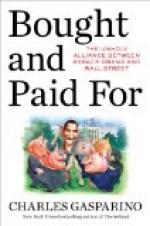Then, all at once, there came a change. It seemed to her that Robert’s manner toward her was not the same. For no apparent cause, he gradually grew more cold and distant. At first she thought she herself might be to blame and she carefully watched her own actions and attitude to see if she was neglectful in any way of wifely duties and devotion. But she had nothing with which to reproach herself. She managed his household and entertained his friends. When they were alone she played and sang for him. But, for some reason that she could not explain, she seemed gradually to lose the power of holding him at home. Under the pretext of urgent business, he stayed away more and more. Usually he telephoned at the last minute, saying he had a business dinner to go to or a directors’ meeting to attend. It was seldom that she could count on his company, and it made her life necessarily seem very lonely. It was nice to be rich, but often she wished that they might be poorer, that Robert were less successful so that their life might be more domesticated, more intimate. She felt that even after two years of marriage she did not know her husband any better than when she first met him. There seemed to be between them an indefinable yet very real barrier which, for some unknown reason, she was impotent to tear down. Sometimes, too, she resented him making so little of her. Instead of taking her into his confidence in his business matters, he treated her as a child, whose opinion on serious things was valueless. Instead of coming to her as a comrade to ask advice, he preferred to play the ardent lover, as if that were all he expected of her. Her womanhood rebelled, but she said nothing. There were times, too, when he returned home very late, exhilarated by too much wine, and on such occasions his boisterous, passionate kisses nauseated her. Often she found herself longing for demonstrations of a more sincere and honest affection, but she always excused him on the ground that it was the fault of his temperament.
Among all her husband’s friends Fred Hadley was the one whose society she preferred. She found him sympathetic, kind and yet always respectful. He being very fond of music and having considerable literary taste, they soon found that they had many interests in common. Sometimes he would join them in their box at the opera, or when Stafford brought him home to dinner they sat and chatted on all kinds of congenial topics while the husband, wholly absorbed in the business details of a busy day, paid only scant attention to the conversation.
One evening the subject of divorce happened to come up. They were discussing the notorious case of a well-known woman in society who had submitted to all kinds of cruelties and indignities on the part of her husband rather than shame him by bringing the matter into court. Stafford, for once becoming interested in the argument, declared decisively that the woman was right, that, having entered into a matrimonial compact, she was in honor bound to conceal from prying outsiders any domestic differences they might have. Virginia promptly differed with him and proceeded to give her reasons. Stafford was no match for her when it came to sociology and he could only grunt disapproval as she went on warmly to defend womankind from the ignominy of a degrading marriage, while Hadley, keenly interested, smoked his cigar and listened.




